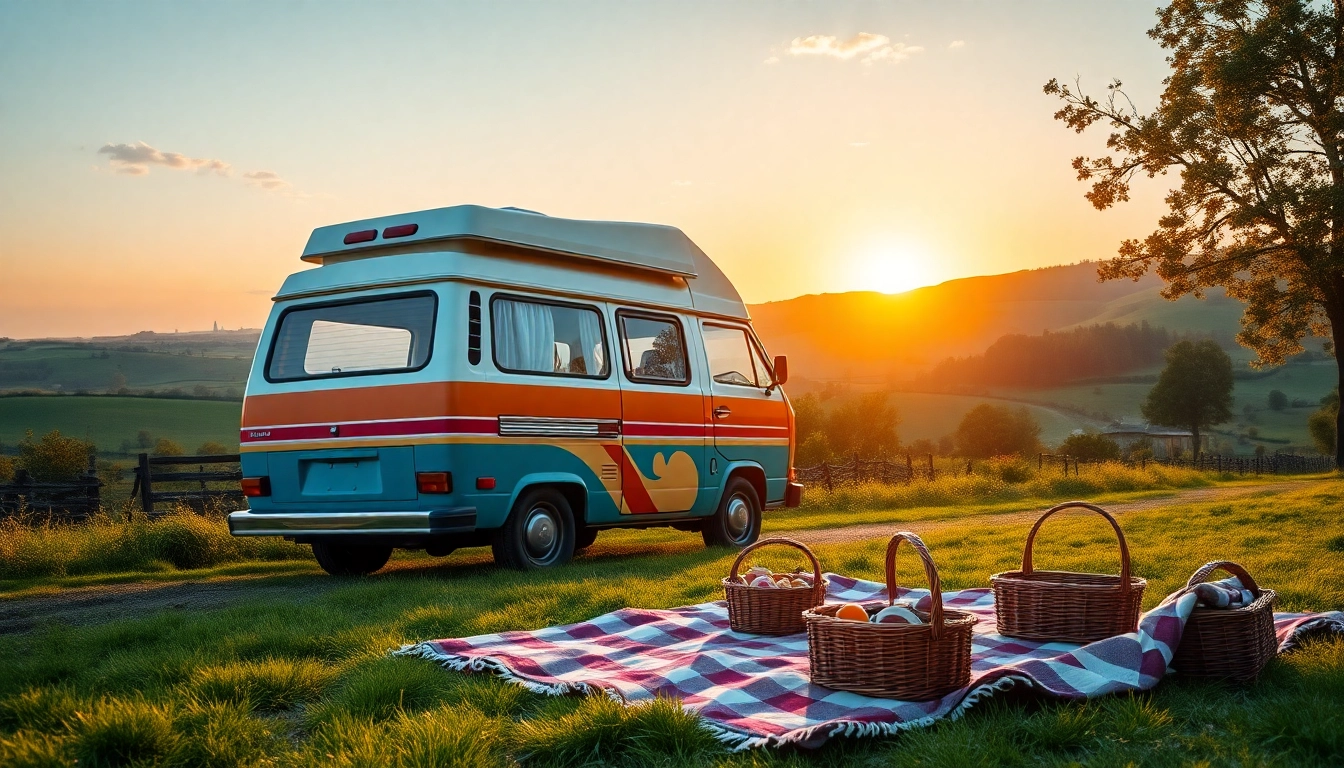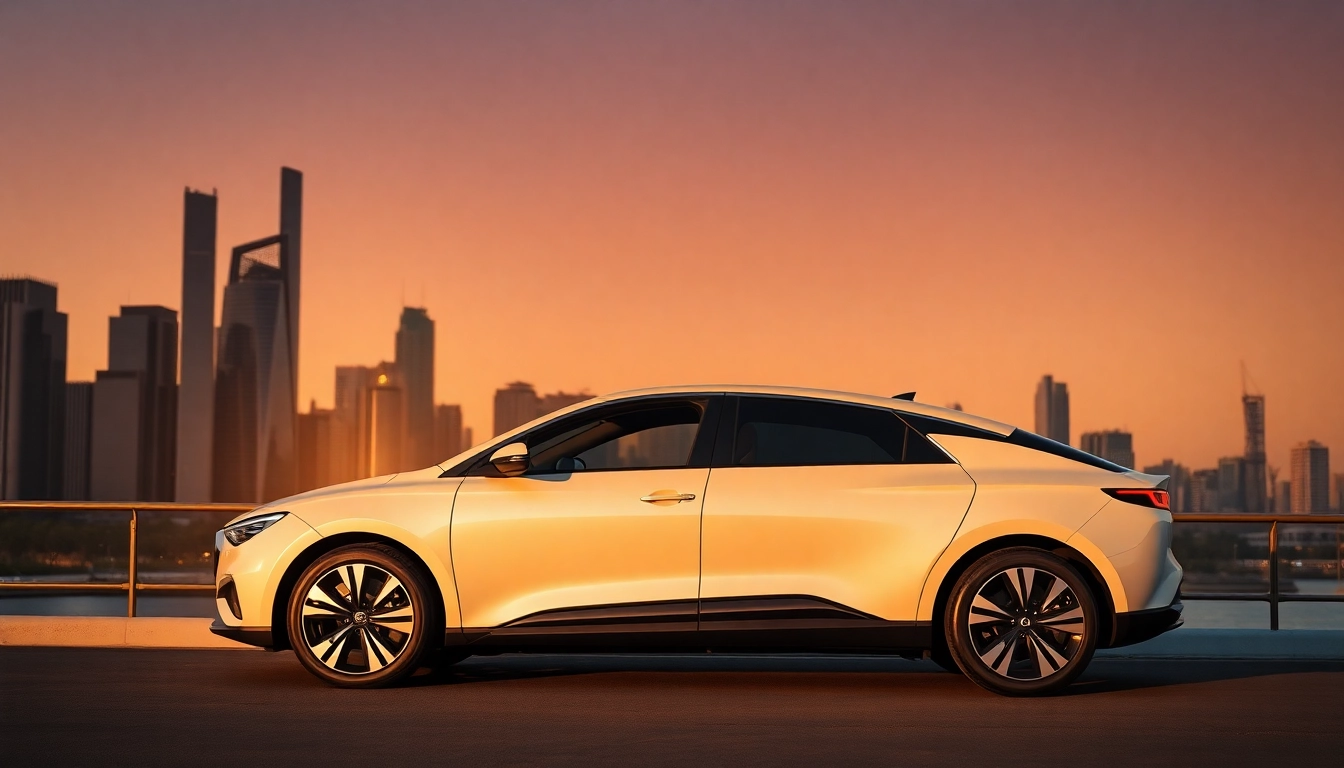Understanding the Camper Van Space
Camper vans have surged in popularity over recent years, becoming a preferred choice for adventurers and families seeking to explore the great outdoors without sacrificing comfort. A camper van provides a unique blend of mobility, convenience, and the ability to be self-sufficient on the road. But what exactly defines a camper van, and why should you consider one for your next adventure?
What is a Camper Van and Its Features?
A camper van is a motor vehicle equipped for living accommodation. Typically constructed on a van chassis, a camper van includes sleeping space, cooking amenities, and often a bathroom, making it an ideal option for both short-term trips and extended road trips.
The specific features can vary widely depending on the model and manufacturer, but commonly you can find:
- Sleeping Area: A comfortable bed that can be converted from seats during the day.
- Cooking Facilities: A compact kitchen area with a stove, refrigerator, and sink.
- Storage Solutions: Cupboards and compartments for gear and supplies.
- Bathroom Facilities: Some models come equipped with toilets and, occasionally, shower facilities.
- Electrical Systems: Integrated power sources for lights, charging outlets, and other appliances.
The Evolution of Camper Vans Over the Years
The concept of camper vans can be traced back to the 1910s when adventurous travelers began modifying vehicles for camping. The Volkswagen Type 2, introduced in 1950, is often credited with popularizing the modern camper van, featuring a compact design and multiple sleeping quarters.
Over the decades, camper vans have evolved significantly. Modern models now include cutting-edge technology like solar panels, internet connectivity, and smart appliances to cater to the needs of tech-savvy travelers.
Advancements in lightweight materials and enhanced fuel efficiency have also made camper vans more accessible and environmentally friendly, appealing to a broader audience than ever before.
Why Choose a Camper Van for Your Next Adventure?
Choosing a camper van for your road trip offers numerous advantages:
- Flexibility: With a camper van, you can change your itinerary on a whim, allowing for spontaneous adventures.
- Comfort: Unlike traditional camping, camper vans provide amenities that make for a comfortable living experience.
- Cost-Effectiveness: While there is an initial investment, the autonomy of cooking your meals and sleeping in your van can save significant money over time.
- Enhanced Connection with Nature: Enjoy the great outdoors from the comfort of your vehicle, enabling a unique blend of travel and camping experience.
Types of Camper Vans Available
Exploring Class B and Beyond: An Overview
Camper vans generally fall under several classifications, with Class B being the most recognized and sought after. Class B vans are built on a standard van chassis and are ideal for couples or small families due to their manageable size and ease of parking.
There are also Class A and Class C RVs, which provide larger living spaces but often sacrifice mobility and convenience. Each type of camper van has its own unique features suitable for different travel styles:
- Class B:
Characterized by their smaller size, making them easy to drive and park. These compact vans often include essential living amenities. - Class C:
Offers more space and typically features a bed over the cab, making it suitable for larger families. - Class A:
The largest type, these motorhomes come with various luxury amenities but can be challenging to maneuver.
Essential Features to Look for in a Camper Van
When considering a camper van, certain features could significantly enhance your travel experience:
- Interior Layout: Assess the flow of the living space; an efficient layout can make a cramped van feel spacious.
- Energy Sources: Look for solar panels, battery systems, or generators to ensure you have access to power during your travels.
- Water Systems: Ensure that there is a clean water supply and waste management systems for cooking and hygiene purposes.
- Heating and Cooling: Depending on your travel plans, a reliable heating or air conditioning system can greatly improve comfort.
Comparing New Versus Used Camper Vans
One of the first decisions you will face is whether to buy a new or used camper van. Both options come with their own benefits and drawbacks:
- New Camper Vans:
Typically come with warranties and the latest technology but can be significantly more expensive. - Used Camper Vans:
Can offer great value for money, but it’s important to assess the condition and history of the vehicle.
Before making a decision, consider your budget, how often you intend to use the van, and the level of wear you are willing to accept in a used vehicle.
Financing Your Camper Van Purchase
Understanding the Costs: Budgeting for Your Camper Van
The cost of a camper van can vary significantly based on factors like model, condition, age, and additional features. Generally, new camper vans can range from $30,000 to over $200,000, while used models may start as low as $10,000.
To budget effectively, consider not only the upfront cost but also additional expenses such as insurance, maintenance, and fuel. Setting aside a contingency fund for repairs and emergencies is also wise.
Best Financing Options for Buying a Camper Van
There are various financing options available when purchasing a camper van:
- Traditional Loans: Many banks and credit unions offer auto loans, which can be used for camper van purchases. Evaluate interest rates and terms before proceeding.
- Personal Loans: These can be an option if you have solid credit. Be sure to compare rates to ensure you’re getting a good deal.
- Lease to Own Options: Some dealers offer leasing options that may be attractive if you do not plan to keep the van long-term.
No matter which financing option you choose, be sure to read the fine print and understand the total costs involved.
Insurance Considerations for Your Camper Van
Insurance is a crucial aspect of owning a camper van. Different types of insurance extend to camper vans:
- Liability Insurance: Required by law to cover damages to other vehicles or property.
- Comprehensive Coverage: Covers your camper van against theft, fire, and other damages.
- Personal Property Insurance: Protects your belongings inside the camper van.
It is essential to shop around and compare insurance policies to find a plan that provides adequate coverage at a reasonable price.
Maintenance Tips for Your Camper Van
Routine Maintenance Practices to Extend Lifespan
Maintenance is key to ensuring that your camper van remains in top condition. Regular checks and servicing can prevent breakdowns while on the road:
- Inspect Fluid Levels: Check oil, coolant, brake fluid, and transmission fluid regularly.
- Monitor Tire Health: Regularly check tire pressure, tread depth, and rotate tires when needed.
- Cleaning and Care: Regularly clean both the interior and exterior to prevent wear and tear.
- Engine Tune-Ups: Keep up with manufacturer recommendations for servicing the engine.
Common Repairs and How to Handle Them
Being prepared for common repair issues can save you time and money. Here are a few prevalent concerns:
- Electrical Problems: Issues with the battery or wiring can often be resolved with basic knowledge of your camper van’s electrical system.
- Water Leak Fixes: Inspect seals around windows and doors regularly to prevent leaks. Signs of water damage should be addressed immediately.
For larger repairs, considering hiring a professional is advisable to ensure the work meets quality standards.
Seasonal Preparation for Your Camper Van
Preparing your camper van for seasonal changes is vital for maintaining its condition:
- Winter Preparation: Winterize your plumbing system to prevent freeze damage. Utilize antifreeze and check heating systems.
- Summer Considerations: Ensure your air conditioning is functioning and consider protective coverings for your vehicle when parked.
Embracing the Camper Van Lifestyle
Tips for Living on the Road Full-Time
Living in a camper van can be a liberating lifestyle choice. Here are some tips to make the experience enjoyable:
- Minimalist Packing: Only bring what is necessary. Space is limited, so prioritize essentials.
- Establish Routines: Create a daily schedule to maintain a sense of normalcy while living on the road.
- Stay Connected: Utilize technology to work remotely or stay in touch with friends and family.
Community and Resources for Camper Van Enthusiasts
The camper van community is robust and supportive, providing numerous resources:
- Online Forums: Connect with fellow van dwellers on platforms like Reddit and social media groups.
- Meetup Groups: Join local meetups to share experiences and tips.
- Travel Blogs: Many van lifers document their journeys online, offering valuable insights and inspiration.
Environmental Impact and Sustainable Travel Choices
As the world becomes increasingly aware of environmental concerns, many camper van enthusiasts are focusing on sustainability:
- Eco-Friendly Practices: Consider solar energy solutions and compost toilets.
- Leave No Trace Principles: Ensure you minimize your impact on nature by following designated paths and not littering.
By making environmentally conscious decisions, you can enjoy all the adventures of van life while protecting the world around you.



